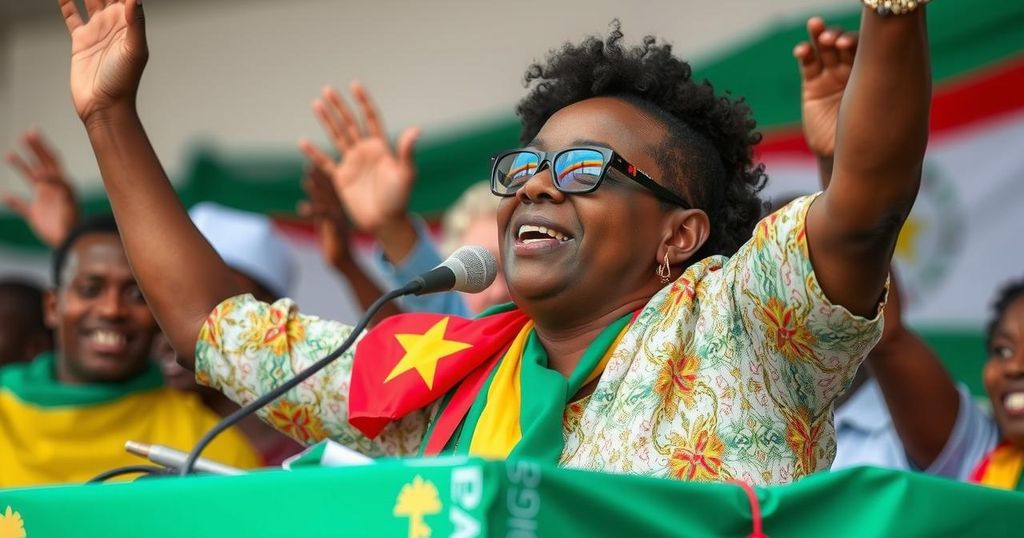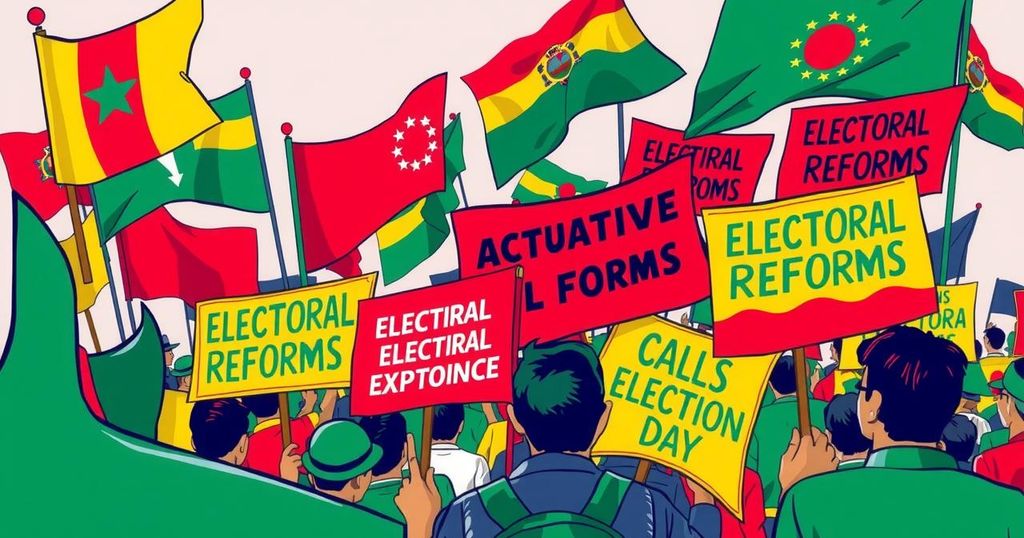Ghana’s Elections: A Beacon of Hope for African Democracy
Ghana’s December 2024 elections showcased the nation’s commitment to free and fair democratic processes, with John Mahama of the NDC winning the presidency over incumbent vice president Mahamudu Bawumia. The elections were characterized by peace and goodwill, earning praise from both local and international observers. This event signals a hopeful trend in Africa’s political landscape, emphasizing the potential for successful democracies on the continent.
The recent presidential and parliamentary elections in Ghana have reaffirmed the nation’s commitment to free and fair democratic processes. On December 7, 2024, Ghanaians demonstrated their ability to conduct peaceful elections without descending into crisis, as they cast their votes in significant numbers. The main contenders for the presidency were Mahamudu Bawumia, the current vice president from the ruling New Patriotic Party (NPP), and John Mahama from the opposition National Democratic Congress (NDC).
Following a competitive race, the Electoral Commission declared John Mahama the victor on December 11, with 6,328,397 votes, representing 56.55%, compared to Bawumia’s 4,657,304 votes, or 41.61%. Notably, Bawumia conceded defeat ahead of the official results, acknowledging Mahama’s decisive victory based on his party’s internal tally. This act of sportsmanship underscores the integrity of Ghanaian democracy, as Bawumia stated, “The people of Ghana have spoken; the people have voted for change at this time, and we respect it with humility.”
The NDC also achieved a remarkable victory in the parliamentary elections, securing 187 out of 276 seats, while their rivals, the NPP, managed only 80. The atmosphere during the elections was characterized by calm and order, with no reports of major incidents before, during, or after the voting process. Observers from various organizations including ECOWAS, the Commonwealth, and the European Union praised the election’s peaceful conduct.
Ghana’s electoral success follows a similar pattern observed recently in other African nations, such as Botswana and Senegal, where political transitions have occurred without unrest. This reinforces the notion that Africa can effectively manage democratic elections when leaders prioritize integrity and accountability.
Daily Trust congratulates the people of Ghana, highlighting that both winners and losers represent the collective will of the citizens. The electorate has shown their concerns regarding economic management through their voting choices, compelling the incoming administration to address these issues with diligence. Ultimately, the peaceful exercise of democracy in Ghana serves as a beacon of hope for the continent, reinforcing that electoral processes can yield constructive outcomes without resorting to violence or turmoil.
This article discusses the recent presidential and parliamentary elections in Ghana, held on December 7, 2024. The electoral process was marked by a peaceful atmosphere and a commendable level of integrity, showcasing Ghana’s commitment to democratic practices. The contest was primarily between Mahamudu Bawumia of the NPP and John Mahama of the NDC, with Mahama emerging victorious. The conduct of the elections has drawn international praise, contributing to a growing narrative of positive political change in Africa.
The successful conduct of the recent elections in Ghana highlights the nation’s capability to engage in democratic processes effectively. The peaceful transition of power, along with the acknowledgment by political opponents, serves as a model for other African nations. Promoting accountability and responsiveness to the electorate’s concerns will be crucial for the new administration as they address pressing economic challenges. Ultimately, Ghana’s experience propels hope for the continent’s democratic evolution.
Original Source: dailytrust.com




Post Comment